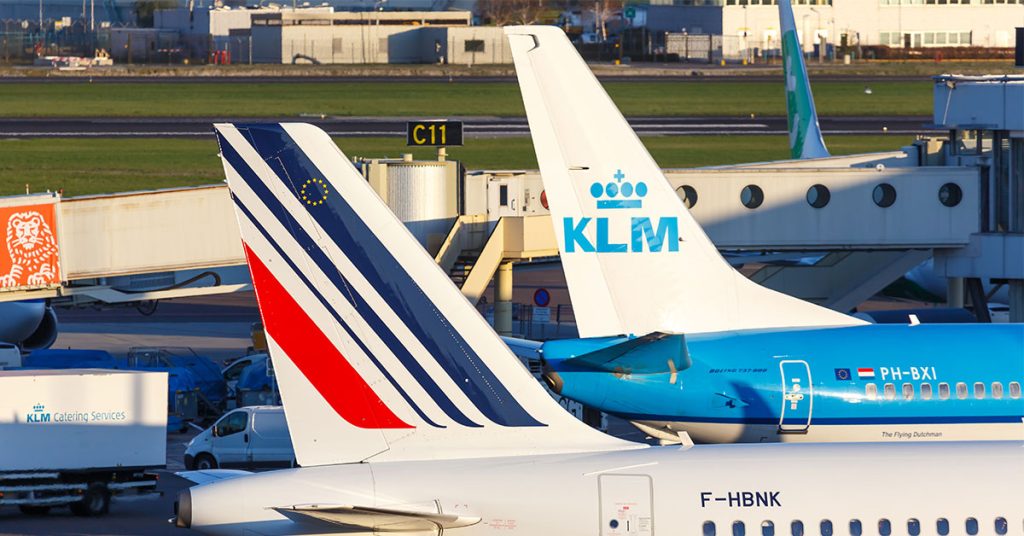Air France-KLM has entered into a pioneering agreement to enhance its supply chain with sustainable aviation fuel (SAF), marking a critical step towards environmental responsibility.
This strategic initiative reflects a decade-long commitment to significantly lower carbon emissions, aligning with global sustainability goals.
SAF Supply Agreement
Air France-KLM has recently secured a landmark agreement to receive up to 1.5 million tons of sustainable aviation fuel (SAF) over the next decade. This deal with TotalEnergies is noted as one of the most substantial SAF contracts ever signed by this European airline conglomerate.
The agreement enhances an existing memorandum from 2002, which previously ensured the supply of 800,000 tons of SAF. By strengthening this partnership, both parties are committed to accelerating efforts to reduce the aviation sector’s environmental footprint, aligning with broader industry goals for sustainability.
Commitment to Sustainability
Air France-KLM has declared an ambitious target to cut its carbon dioxide emissions per passenger by 30% by the year 2030 as compared to 2019 levels. This ambitious target will be achieved through fleet upgrades, adoption of operational efficiencies, and integrating at least 10% SAF mixes in all flights.
The airline group leads the globe in SAF usage, owning 17% and 16% of global production in the past two years, respectively. This new deal is expected to bolster its position and further its environmental objectives.
Significance of Second-Generation SAF
An integral aspect of Air France-KLM’s sourcing strategy is its emphasis on acquiring second-generation SAF, which does not interfere with global food resources.
The supplied SAF is derived primarily from waste and residue streams, formed within a circular economy framework. This is crucial for maintaining ecological balance and ensuring that fuel production does not compete with food production.
Executive Insights
Chief Executive Benjamin Smith highlighted the immense challenge of sourcing sufficient sustainable aviation fuel to meet decarbonisation goals. He emphasised the strategic importance of this deal with TotalEnergies to advance the production of SAF across France and Europe.
Smith stated, “Securing the volumes of more sustainable aviation fuel needed to decarbonise our activity is a major challenge. This agreement with TotalEnergies is a further step in this direction…”
Benefits and Strategic Importance
For TotalEnergies, the venture offers a dual transition benefit—advancing both aviation energy changeover and refining sector evolution. SAF stands as an emblem of industrial success in bio-refining and co-processing technologies, reinforcing Europe’s energy independence.
Patrick Pouyanne, TotalEnergies’ CEO, noted the win-win potential of SAF for industry and aviation’s future, stating the company’s decade-long pioneering efforts with bio-refineries.
Future Prospects
The development of a reliable SAF sector is deemed crucial, contributing significantly to Europe’s strategic autonomy concerning energy. Both organisations express intent to sustain and extend their collaborative success.
This collaboration signifies a critical advancement toward greener aviation, setting a benchmark for others in the sector to follow and highlighting key areas for potential innovation and investment.
Industry Context
Air France-KLM’s commitment to sustainable aviation is reflective of a wider shift within the aviation industry, where reducing emissions is increasingly vital.
The airline’s proactive approach in SAF adoption exemplifies how traditional airlines can pivot towards environmental stewardship.
Air France-KLM’s sustained focus on sustainable aviation represents a significant leap forward for the industry, modelling a template for eco-friendly initiatives.
As the airline giants align with TotalEnergies, the partnership sets a strong precedent and transformative pathway for aviation’s future.

